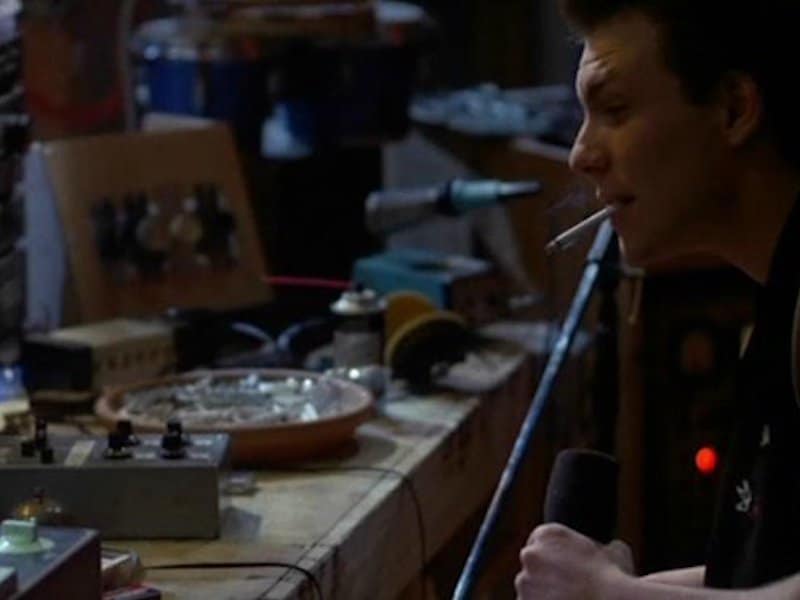
It’s a common subject of debate among film geeks: can Movie X be remade and how? Often times the conversation becomes especially heated when, to paraphrase the legendary Dr. Ian Malcolm, we delve into studios focusing so much on whether they could remake our favorite movies that they don’t stop to consider whether they should. When stalwart affinity can be placed aside ‐ emotion is not logical ‐ the discussion of whether a movie could be remade is usually a question of that original film’s cultural shelf life.
This week on the Junkfood Cinema podcast, we discuss the 1990 teen dramedy Pump Up the Volume starring Christian Slater and Samantha Mathis. The film centers on a socially awkward young man whose personality is found and energized by his alter ego Happy Harry Hardon who steals air time on an unused frequency of local radio to shock, entertain, and most importantly rally the youth of his community into action. Pump Up the Volume is a story that champions the idea of how clout of all shapes and sizes can be used as an effective tool for change.
The first hurdle to remaking Pump Up the Volume should be about as subtle as a 2 Live Crew lyric. Local radio as a medium has, unarguably, faded into static. Satellite radio and music streaming services have made obsolete the need for the FM dial jukebox and even talk radio is now largely a pay-for-play industry. The concept of a pirate radio signal broadcasting to a very localized area is as archaic as gas lamps and VHS rewinders. Even if one supposed a contemporary iteration of Happy Harry Hardon would trade radio waves for his own podcast, the Internet is not exactly regionally compartmentalized.
However despite the quaint cultural snapshot contained in its technological conceit, the themes of Pump Up the Volume are as loudly vital in 2016 as they were in 1990…in fact, more so. It is a story about feeling isolated, about a young man who believes he has no voice in the real world and uses the anonymity of his DJ persona to combat appalling injustice and corruption. Those who try to pull the plug on his pirate radio broadcast are doing so solely because he represents the threat of the unified oppressed. And the best part is, jot this down folks, Harry is not self-interested. His father is the school commissioner and as such he will never be personally affected by the tyranny of Principal Creswood, but still he challenges her illicit behavior. He is fighting for what’s just, not just what he wants. Harry doesn’t lean left or right, he stands tall for what is capital “r” RIGHT.
In a political climate wherein demagogues can be elected president, where profits continue to supersede people, and wherein supposedly objective media outlets do more spinning than the records at Harry’s homemade radio station, the idea of an underdog selflessly taking on the entrenched apathy (at best) of those whom have purportedly been appointed to serve isn’t just inspiring, it’s the faint sound of hope just audible on the edge of our signal range.
“ Do you ever get the feeling that everything in America is completely fucked up?”
We sure do Harry, we sure do. And if the ending of Pump Up the Volume is to be our rallying cry, it’s time for more of us to pump up the bandwidth and start making our own voices heard. Talk hard, not-so-gentle listener, and if you have to adopt a pseudonym to embolden yourself to stand for what is right…so be it.
Want to hear more hard-talkin’ on this flick? Pump Up the Volume on this week’s Junkfood Cinema Podcast!
As a special treat, anyone who backs JFC on Patreon will have access to a weekly bonus episodes covering an additional cult movie, a new movie in theaters, or a mailbag episode devoted to your submitted questions! Have a couple bucks to throw in the hat, we’ll reward you!
On This Week’s Show:
- Appetizers [0:00–0:51]
- The Main Course[0:52–1:00:12]
- The Junkfood Pairing[1:00:13–1:04:09]
Follow the Show:
Related Topics: Junkfood Cinema, Music, podcast
